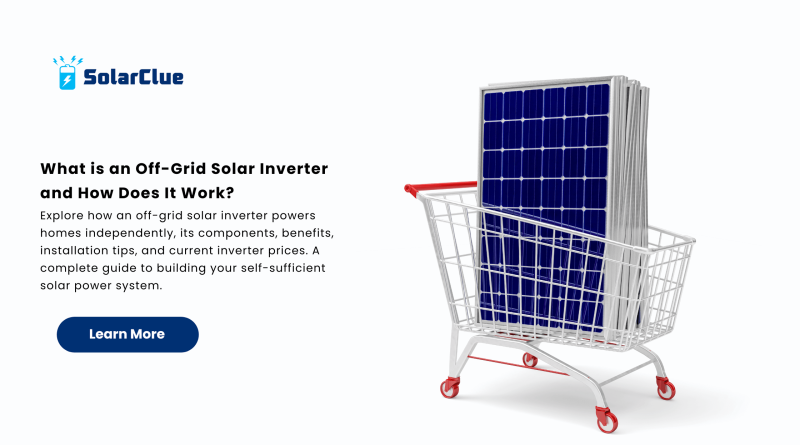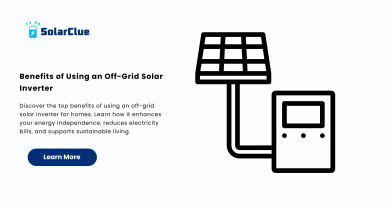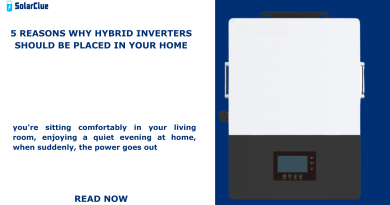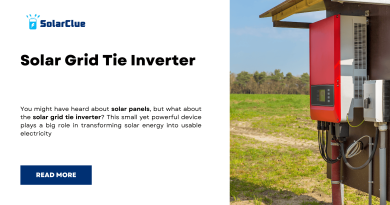What is an Off-Grid Solar Inverter and How Does It Work?
In a world where energy independence and sustainability are becoming more important than ever, off-grid solar systems are gaining popularity. Whether you’re living in a remote location or simply want to reduce reliance on the traditional power grid, an off-grid solar inverter is an essential part of the solution. This comprehensive guide will help you understand what it is, how it works, and why it’s the core of any off-grid energy solution.
Table of Contents
- 1 What is an Off-Grid Solar Inverter?
- 2 How Does an Off-Grid Inverter Work?
- 3 Key Components of an Off-Grid Solar System
- 4 Benefits of Using an Off-Grid Solar Inverter
- 5 Where Are Off-Grid Inverters Used?
- 6 Solar Inverter Prices and Budgeting Tips
- 7 How to Install an Off-Grid Solar Inverter
- 8 Maintenance Tips
- 9 Is an Off-Grid System Right for You?
- 10 Trends and the Future of Off-Grid Solar
- 11 Conclusion
- 12 FAQs
What is an Off-Grid Solar Inverter?
An off-grid solar inverter is a device that converts the electricity generated by solar panels from direct current (DC) into alternating current (AC), which is used to power common household appliances. Unlike grid-tied inverters, an off grid inverter is not connected to the main electricity grid. Instead, it functions as part of a remote solar power system, storing energy in batteries and ensuring a reliable power supply even when the sun isn’t shining.
How Does an Off-Grid Inverter Work?
The system starts with solar panels, which capture sunlight and generate DC electricity. This electricity is then passed to a charge controller that manages how power flows to the battery storage system. Once the batteries are charged, the off-grid solar inverter converts that stored energy into AC electricity to power your home.
In short, the cycle looks like this:
-
Sunlight → Solar Panels → DC Electricity
-
Charge Controller → Battery Bank → Stored DC
-
Off-grid Inverter → Converts DC to AC → Powers Your Home
This setup ensures uninterrupted power, making it perfect for off-grid power solutions and solar power backup systems.
Key Components of an Off-Grid Solar System
To make a system fully functional, it must include:
-
Solar panels – Capture sunlight and generate energy
-
Charge controller – Manages energy flow into batteries
-
Battery bank – Stores energy for use when sunlight isn’t available
-
Off-grid solar inverter – Converts stored DC energy to usable AC power
Benefits of Using an Off-Grid Solar Inverter
Investing in an off-grid solar inverter offers numerous benefits:
-
Full energy independence from the utility grid
-
Ideal for rural or remote homes
-
Continuous power during outages
-
Cost savings over time
-
Eco-friendly energy use
-
Supports a self-sufficient solar power lifestyle
Whether you’re planning for emergencies or building a remote solar power system, an off-grid inverter is essential.
Where Are Off-Grid Inverters Used?
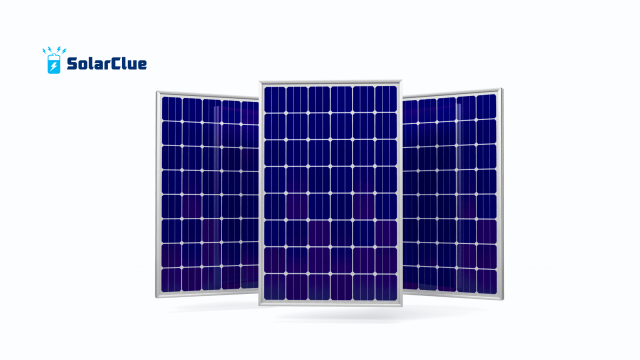
These inverters are commonly used in:
-
Farms and rural homes
-
Cabins and mountain houses
-
Off-grid offices or stores
-
Mobile homes and boats
-
Disaster relief centers
-
Areas with frequent power cuts
They are also used as part of solar inverter with battery backup systems in urban homes seeking power stability.
Solar Inverter Prices and Budgeting Tips
Inverter prices can vary greatly depending on brand, capacity, and battery compatibility.
-
Entry-level 1kW systems: ₹10,000 – ₹20,000
-
Mid-range 3–5kW with battery: ₹50,000 – ₹80,000
-
High-end hybrid inverters: ₹1,00,000+
The more complex your energy needs, the higher the cost—but the savings in the long run can be substantial. You can check out current prices and offers at solarclue.com or explore insights at blog.solarclue.com.
How to Install an Off-Grid Solar Inverter
Installing a solar inverter properly is crucial. It’s best to work with a certified installer. Here’s what the process involves:
-
Assess energy requirements and system sizing
-
Mount solar panels in a sunny location
-
Connect panels to charge controller and batteries
-
Connect the off-grid solar inverter to the batteries and load
-
Test and configure system settings
Professional solar inverter installation ensures safety, longevity, and performance.
Maintenance Tips
To keep your system running smoothly:
-
Clean solar panels regularly
-
Check battery water levels (for lead-acid types)
-
Inspect wiring and inverter status monthly
-
Replace old batteries every 5–8 years
-
Perform full servicing annually
Newer systems also offer smart monitoring apps to track performance in real-time.
Is an Off-Grid System Right for You?
An independent solar power system is ideal if you:
-
Live in an area without grid access
-
Want a reliable backup power source
-
Prefer to control your own energy use
-
Are investing in a sustainable lifestyle
If your answer is yes to any of the above, then a solar inverter with battery backup is a worthwhile solution.
Trends and the Future of Off-Grid Solar
Thanks to technological advancements, modern systems now offer:
-
Smart inverters with mobile apps
-
Modular designs for easy expansion
-
High-capacity lithium battery banks
-
AI-based battery management
As these systems become more affordable, off-grid energy solutions will continue to empower communities around the world.
Conclusion
An off-grid solar inverter is more than just a device—it’s your gateway to true energy freedom. It enables you to create a self-sufficient solar power system that is both reliable and sustainable. From reducing electricity bills to surviving power outages, its value is undeniable.
Ready to take the next step toward energy independence?
Start exploring your options today at solarclue.com, and don’t forget to dive deeper into expert insights at blog.solarclue.com.
Take control of your power—because freedom begins with energy.
FAQs
1. What is the main purpose of an off-grid solar inverter?
It converts DC power from solar panels into AC power for use in off-grid homes or systems.
2. Can I use an off-grid inverter in the city?
Yes, especially as part of a solar power backup system during outages.
3. Do I need batteries for an off-grid solar inverter?
Absolutely. Batteries are essential to store power for nighttime or cloudy days.
4. How long do off-grid inverters last?
Typically 10 to 15 years with proper maintenance.
5. Are off-grid systems expensive?
Initial costs may be higher, but long-term savings and independence make them worth it. Compare the latest inverter prices at solarclue.com.

